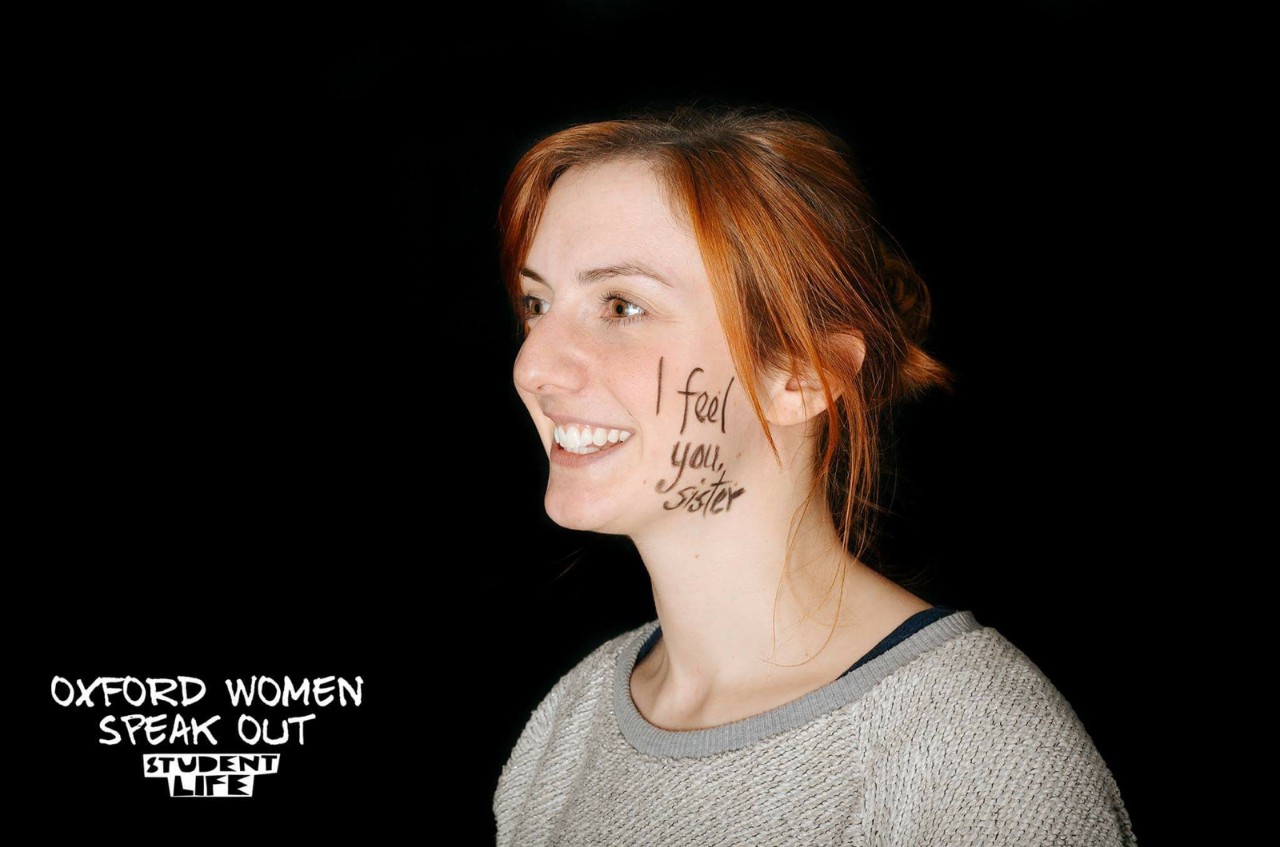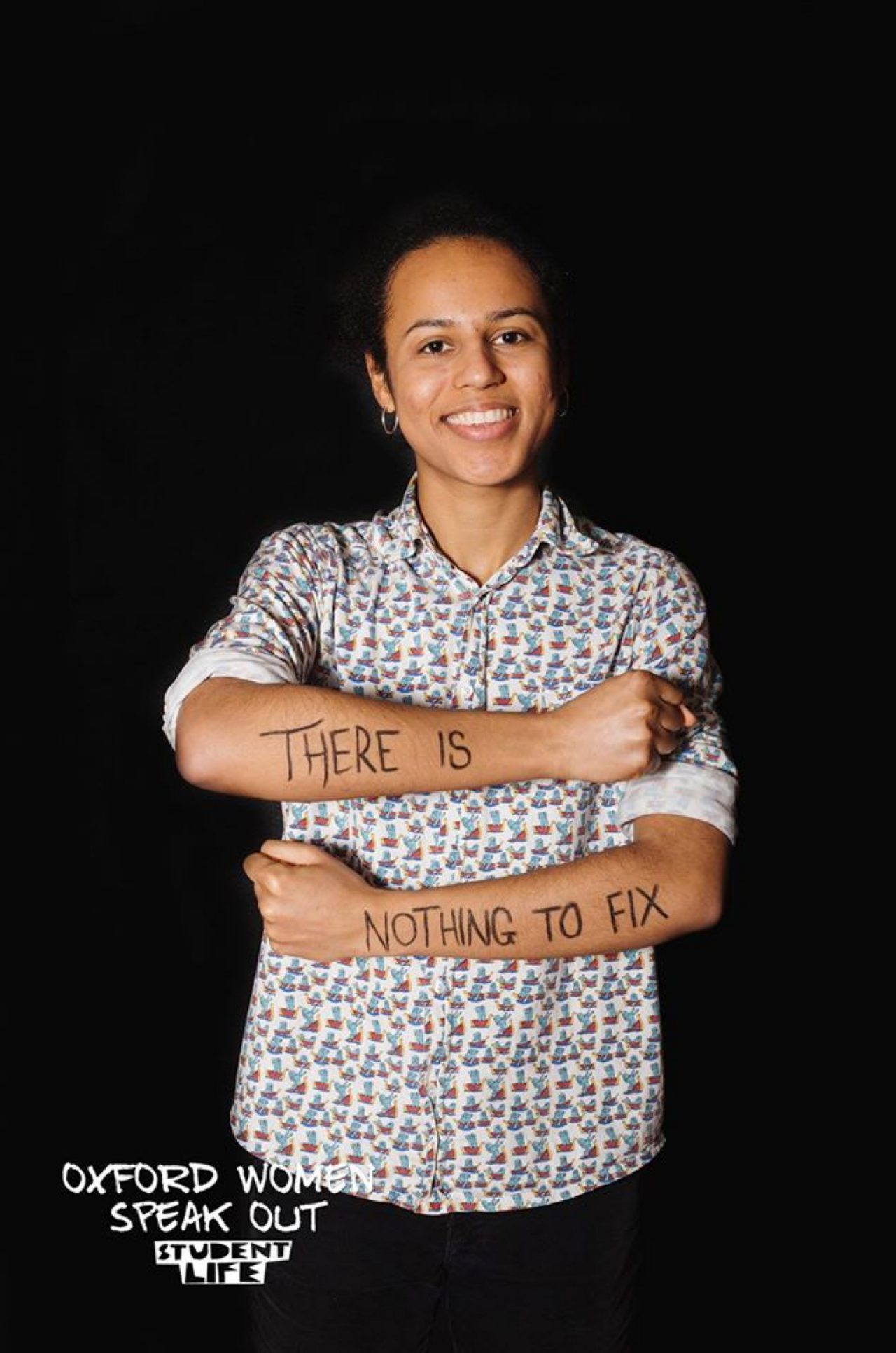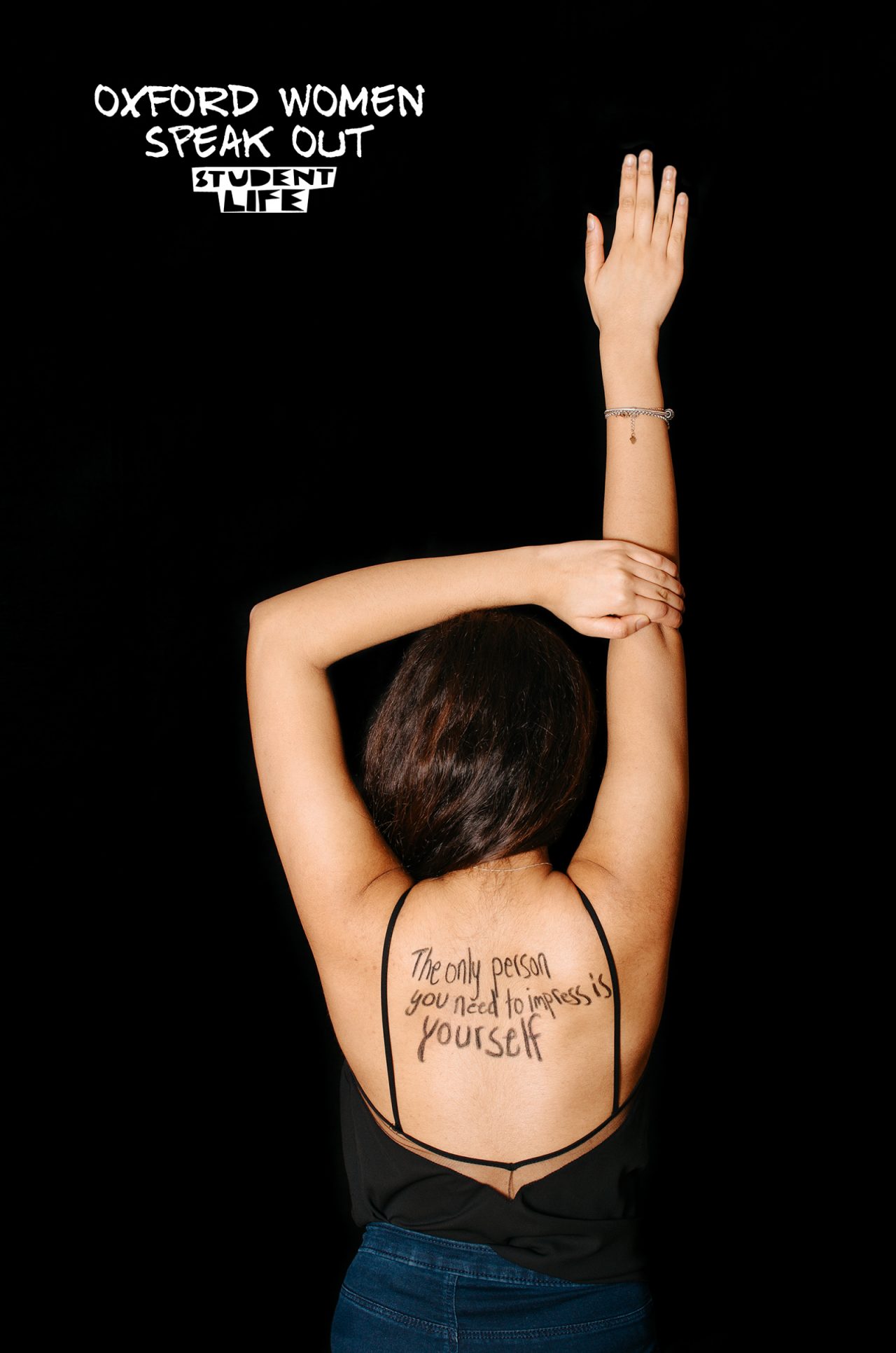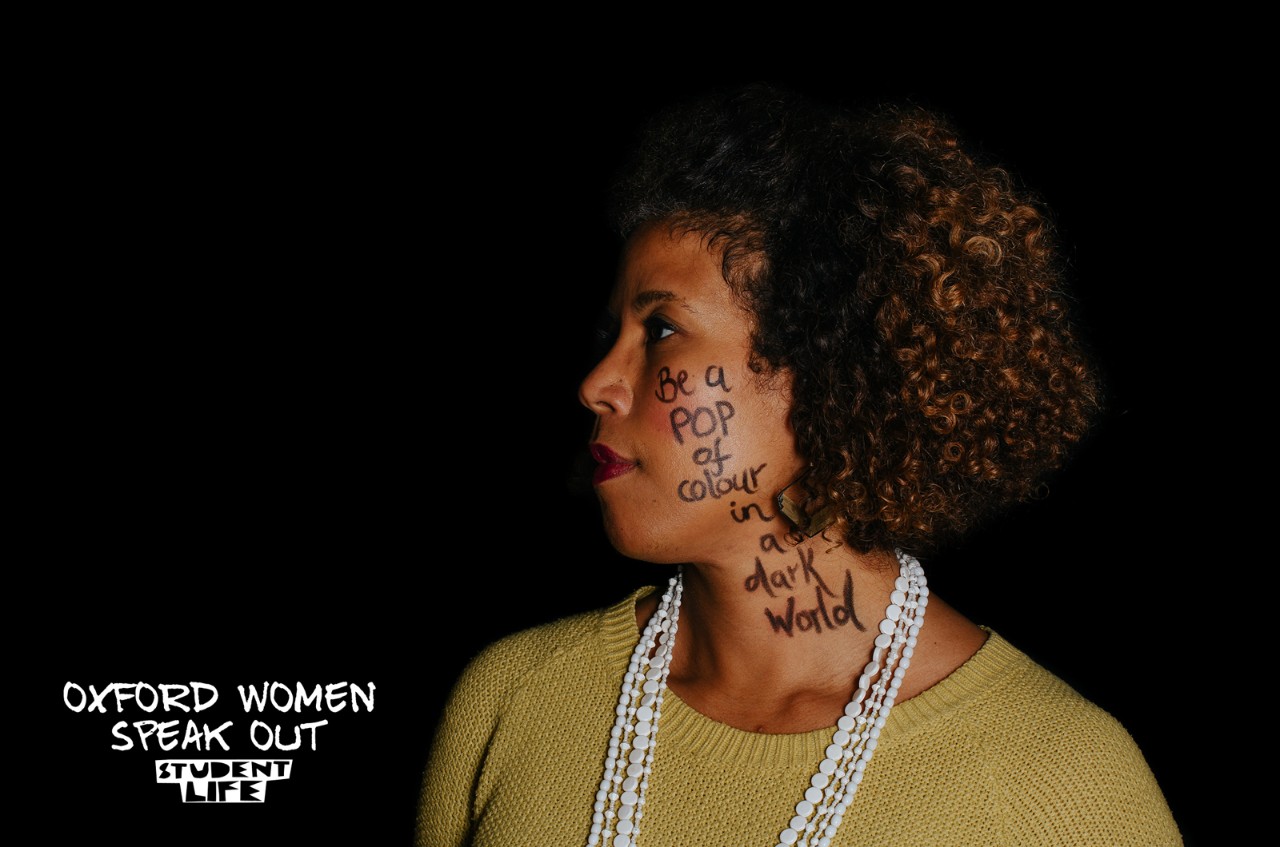words by
Oxford University in England is known for its culture of intellectual debate and dialogue. Female students there look forward to being political, cultural and intellectual leaders all over the world. But the promise of bright futures doesn’t erase the pain of issues like gender inequality and the cultural pressure to build their identities on their appearance. These are hot topics for Oxford’s women.
Kate Bernstock is one of those women.
A third-year student and gender equality officer (a university-established role that promotes and defends equality) within the university, Kate grew up in a culturally Jewish but non-religious family. As a teenager, she attended Christian camps with her best friend.
When she arrived in the hectic academic and social atmosphere of Oxford, she stopped thinking about religion.
But scrolling through Facebook one day, Kate noticed ads on an Oxford Facebook group that piqued her interest in a project called Speak Out 2016.
Oxford Student Life (as Cru® is known there) created the Oxford Women Speak Out campaign as a way to engage in the issues facing female students and move the conversations to a heart level. Every year, Speak Out offers women the chance to write positive messages to their peers somewhere on their bodies, have their pictures taken by a professional photographer and then share those images via social media. The project started in Oxford four years ago and has spread around the U.K. and to mainland Europe. More than 400 women participated in 2017’s photo shoot.
Curious, Kate attended the photo shoot in 2016 in part to ensure she was comfortable encouraging others to participate. Students knew a Christian group hosted Speak Out, and Kate heard some were expecting to be confronted with an effort to convert them.
Instead, she arrived to a room full of young women chatting, laughing and writing messages on their bodies using eyeliner pens. Kate saw women embracing an opportunity to say something positive to a community of female students often characterized by constant academic and social pressure.
 Mairi Joanna Stirling Hill (left) and Hannah Chukwu: “Our strength is not aggression.” “Our compassion is not weakness.”
Mairi Joanna Stirling Hill (left) and Hannah Chukwu: “Our strength is not aggression.” “Our compassion is not weakness.”
The students spoke warmly of Ellie Staton, a Student Life staff member, whom Kate met that day.
“She appeared quite nervous,” Ellie says of Kate. “So when I was looking through the pictures afterwards, I thought, ‘Oh, I remember her. I’ll message her and get in touch.’”
They met for coffee, and during their conversation, Ellie asked Kate, “Do you have spiritual beliefs of your own?”
“My best friend’s a Christian, but it’s just something I’ve never had time to think about myself,” Kate replied.
“Do you think you’d like to?” Ellie asked her.
“Yes, I would,” said Kate. Ellie invited Kate to church with her, and their friendship became a means for Kate to overcome some negative preconceptions of Christianity while exploring what Jesus Himself said.
Ellie believes the success of Speak Out is built on creating safe spaces for women to talk about their shared struggles, as so many are accustomed to competing with or comparing themselves to each other.
 Ellie Staton: “I feel you, sister.”
Ellie Staton: “I feel you, sister.”
As a young black girl growing up in London’s racially diverse East End, Kate remembers feeling pressure to conform to media images of beautiful women who were always white.
“I remember not being allowed to take certain roles when we acted things out in the playground or in school plays, because the teachers and children considered the characters white,” says Kate. “As a child I even remember once standing in the shade of a tree, hoping my skin would lighten.”
Kate has also watched women close to her who struggle.
“Oxford is riddled with mental health issues,” says Kate. “One of my best friends had a severe case of anorexia that meant she had to withdraw from university for two years to recover.”
Those memories and the experiences of her friend with anorexia stuck in Kate’s mind when she chose her message for the Speak Out photo shoot.
“There is nothing to fix,” she penned on her forearm.
 Kate Bernstock: “There is nothing to fix.”
Kate Bernstock: “There is nothing to fix.”
“I think as a society, we put a lot of pressure on women to change how they look,” Kate says. “I now feel very strongly that I shouldn’t have to change anything about myself to fit in.”
Student Life’s commitment to beginning conversations is breaking down some of the barriers to a faith that many students perceive as too traditional. Student Life helps students connect with the words of Jesus through issues already on their hearts and minds.
After the photo shoots, Student Life staff members invite the women to follow-up discussion groups called What Women Want. Kate and Ellie co-host one of these groups in Kate’s college. Each week they explore what it means to be women in today’s culture by focusing on topics like relationships, forgiveness and identity, using concepts taken from the Bible.
“We did one discussion on love and talked about different love languages,” Ellie says. “Then we used 1 Corinthians 13 and talked about God’s unconditional love.”
 Saloni Patel: “The only person you need to impress is yourself.”
Saloni Patel: “The only person you need to impress is yourself.”
Although hundreds of women have taken part in the photo shoots, the Student Life team still struggles to have long-term conversations about faith with many of them. So Ellie’s perspective is to focus on the few with whom God wants her to build deeper relationships—women like Kate.
“It kind of spurs me on, thinking about who those individuals are going to be. Where are we going to find them? What’s God doing in their lives?”
Kate credits the What Women Want groups with teaching her to listen to people she wouldn’t normally befriend. The group has also shaped how she views God and has provided space for her to explore who Jesus is.
“The reason I was so keen to pursue the project was that I wanted to be around godly people and connect with God the way I had at those Christian camps,” says Kate.
 Nicole Lewis: “Be a pop of colour in a dark world.”
Nicole Lewis: “Be a pop of colour in a dark world.”
Ellie and the Oxford Student Life team have recognized that for students to encounter Jesus, they have to be able to trust Christians and overcome what they see as the tarnished reputation of religious people.
“For a lot of people, being involved in this project has normalized being around Christians,” says Kate.
“I think the way that Jesus interacted with women was so ahead of His time,” says Ellie. “He interacted with women [in ways] that it wasn’t culturally appropriate to, but He met them where they were. We want to do the same thing.”
Interested in running a project like Oxford Women Speak Out near you? Email oxford@mystudentlife.org.uk.
Agape Student Life is grateful to the Dear World Campaign, which inspired SpeakOut. For more information, please visit dearworld.me.
Photos courtesy of Oxford University Student Life.
Share
©1994-2022 Cru®. All Rights Reserved.